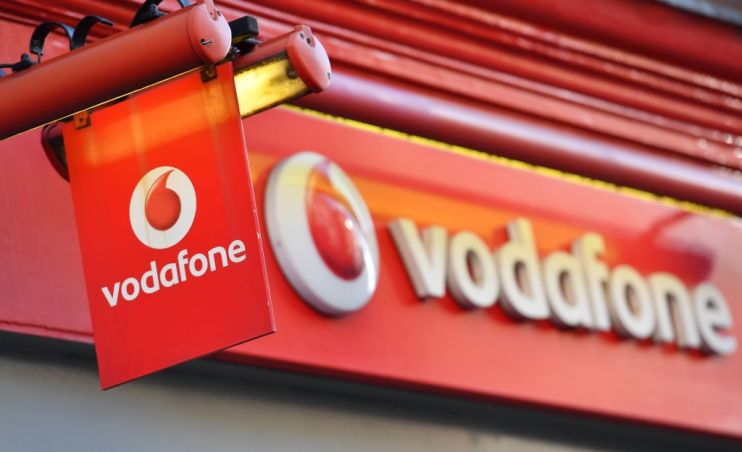Vodafone revenue falls as group pins future on UK and exits ‘challenging’ Spanish market

Vodafone’s group service revenue has declined 4.3 per cent in the first half of the year, compared to the same period last year, as it struggles to claw back into profit.
In an update to markets, the telecoms company said Germany, its largest division, returned to growth and it was the highest-performing market. Shares dropped almost three per cent on Tuesday morning.
Operating profits plunged 44.2 per cent to €1.7bn (£1.5bn), which Vodafone said was due to “business disposals in the prior financial year, adverse foreign exchange rate movements and lower share of results of associates and joint ventures”.
In the UK, which represents 15 per cent of the group, revenue fell 0.4 per cent to €3.4bn (£3bn).
The group said it expects to meet its previous guidance for the full financial year of adjusted earnings before tax of around €13.3bn (£11.6bn) and cash flow of “around” €3.3bn (£2.9bn).
Margherita Della Valle, group chief executive, is counting on UK and Spanish strategies to turn around the group’s fortunes.
“We have also announced transactions to strengthen our position in the UK and exit the challenging Spanish market in order to right-size our portfolio for growth,” she told investors this morning.
In the summer, Vodafone UK and Three UK announced a tie-up deal valued at £15bn, which Britain’s competition regulator is currently probing. It is expected to close before the end of next year.
And last month Vodafone revealed plans to sell off its weaker Spanish division to comms company Zegona in a bid to swivel the group into profitability.
If the deal gets approved by regulators, Vodafone would receive at least €4.1bn (£3.6bn) in cash.
But Aarin Chiekrie, equity analyst at Hargreaves Lansdown, said the funds from the Spanish deal are “likely going to get ploughed back into paying down the group’s hefty debt pile, rather than supporting unsustainable dividend payments.”
The company’s dividend payout is currently really high at over 10 per cent, meaning it is likely Vodafone will reduce it soon.
“There are also whispers that Vodafone is looking at strategic options for its Italian unit, which could include the sale of the business or finding a partner,” said Chiekrie.
Vodafone’s Italian unit is one of the group’s stronger performers, although it is facing an increasingly competitive market. Italy’s total half-year revenue fell 2.4 per cent from the first half of 2022.
“Vodafone delivered a pretty unexciting set of results this morning,” said Ben Barringer, technology analyst at Quilter Cheviot. “The telecoms giant has been struggling of late in a very competitive mobile market, so the fact there are no clangers or warnings will be a relief to the market.”
In the telecoms sector though, Barringer still prefers BT because of its superior product pipeline and execution.
“Ultimately BT is producing communications services that are faster and more consistent, and as such should perform well in the long-term,” he added.
This morning BT said it has reduced its pension deficit down to £3.7bn, from almost £8bn three years ago, and the payment to the scheme remains unchanged.